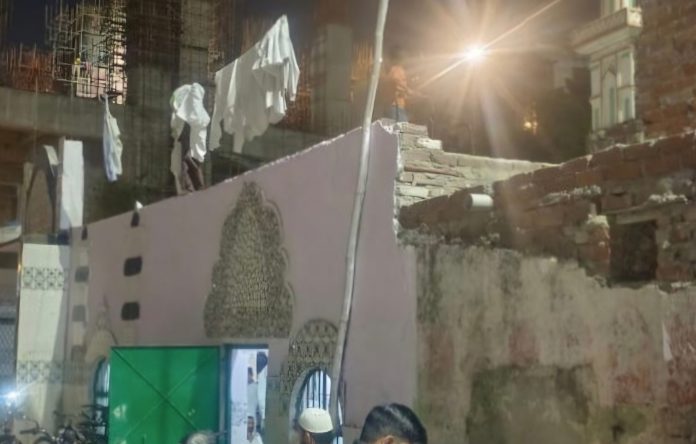
The Delhi High Court has issued an order to temporarily protect the Faizyab Mosque and Madrasa in the Sarai Kale Khan area from demolition, extending the reprieve until September 12, 2024. This follows a surprising turn of events where the mosque’s caretaker, Deen Mohammed, unexpectedly withdrew his petition and agreed to vacate the premises.
Justice Amit Sharma, presiding over a vacation bench on May 12, granted a one-month period for vacating the premises. The court dismissed the petitions after Deen Mohammed, represented by Advocate Kamlesh Kumar Mishra, agreed to leave the site within the stipulated time. Justice Sharma noted in his ruling, “Mr. Deen Mohammed, the caretaker and authorized representative of the petitioner, is present in court and identified by the learned counsel. He submits that the premises shall be vacated within a period of one month from today, and the petitioner or any other person claiming through it shall not make any further endeavor to stall the drive undertaken by respondent Nos. 1 and 2.”
The land for the mosque was donated by Deen Mohammed’s father in 1972, with the construction of the mosque completed in the early 1980s. Deen Mohammed inherited the role of mutawalli, or caretaker, of the mosque and its associated properties. The initial petition, filed by Deen Mohammed through Advocate Fuzail Ayubi, led Justice Sachin Datta to order the Delhi Development Authority (DDA) to submit a status report on the property, temporarily protecting the mosque.
The abrupt withdrawal of the petition has left many in the community and legal circles puzzled. Inamurrahman, Assistant Secretary of Jamaat-e-Islami Hind (JIH), who has been closely monitoring the case, voiced his concerns, stating, “The sudden withdrawal of the petition, which had initially secured court protection, raises serious concerns. The mosque’s legal team had presented strong evidence of its status as a waqf property, making the reversal very surprising.”
A prominent community member echoed these sentiments, questioning the fairness of the process: “The mosque’s legal team had ample evidence in its initial petition about the legality of the mosque and madrasa. It is surprising that the petition was withdrawn.” He also expressed concerns about a potential conflict of interest, noting that the same official oversees both the Delhi Religious Committee and the Delhi Waqf Board.
The controversy began in March-April when local police officials informed the mosque’s administrators of impending demolition plans. Deen Mohammed approached the court, citing the mosque’s establishment in 1972 and its registration as a waqf property in 1989. He provided evidence, including land records and no-objection certificates from the Waqf Board for electricity connections, arguing that the property was not an encroachment on public land.
Despite the initial judicial protection, the future of the Faizyab Mosque and Madrasa remains uncertain. With the court granting a one-month grace period, the community and legal experts are anxiously awaiting further developments, hoping for a resolution that respects religious rights and upholds justice. The withdrawal of the petition, while providing temporary relief, has raised questions about the underlying motives and potential pressures behind this sudden decision.
The coming weeks will be critical for the Faizyab Mosque and Madrasa, as supporters and community leaders strive to find a lasting solution to preserve this historic place of worship.
